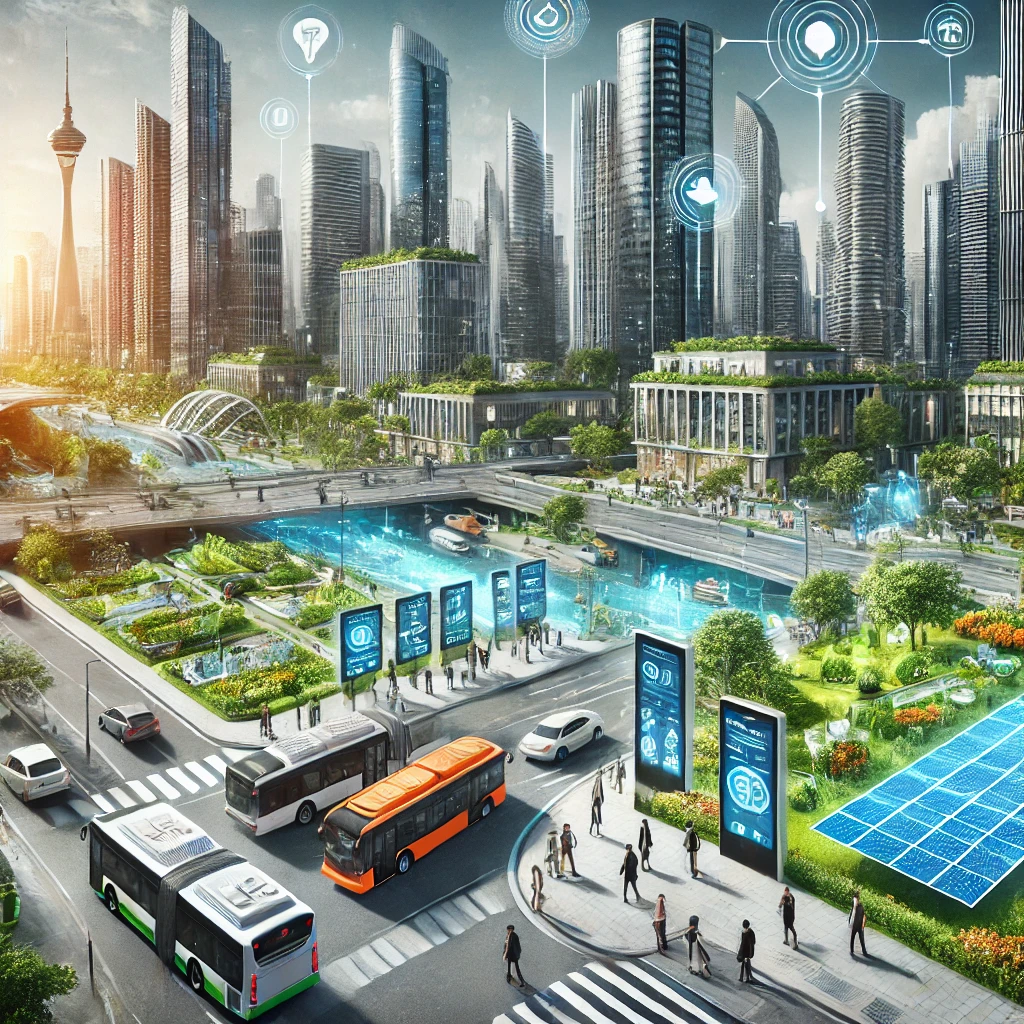

As urban populations continue to grow, the need for smarter, more sustainable cities has become increasingly important. With advancements in technology, cities around the world are adopting smart city initiatives to address the challenges of energy management, public transport, and environmental sustainability. These innovations are not only improving the efficiency of urban areas but are also making them more livable and environmentally friendly for future generations.
One of the key areas where technology is transforming cities is in energy management. Smart grids and energy-efficient buildings are helping cities reduce their carbon footprint and make better use of renewable energy sources. By incorporating solar panels, wind turbines, and other green technologies into the urban infrastructure, cities can generate cleaner energy and reduce their reliance on fossil fuels. In addition, smart meters and energy management systems allow residents to monitor and reduce their energy consumption, promoting a more sustainable lifestyle.
Public transport is another critical aspect of urban life that has been revolutionized by technology. With the rise of electric buses, autonomous vehicles, and smart traffic systems, cities are becoming more connected and efficient. Real-time tracking of public transport helps residents plan their journeys more effectively, reducing wait times and improving the overall commuter experience. Additionally, electric vehicles and shared mobility solutions help cut down on emissions, contributing to a cleaner, greener environment.
Sustainability is at the core of many smart city initiatives. Urban planners are increasingly focusing on creating eco-friendly environments with green spaces, pedestrian-friendly areas, and energy-efficient infrastructure. Smart waste management systems, for example, use sensors to monitor waste levels and optimize collection routes, reducing the environmental impact of waste disposal. Meanwhile, urban agriculture and vertical farming initiatives are being integrated into city landscapes to provide fresh produce while reducing transportation emissions.
One of the most exciting developments in smart cities is the integration of Internet of Things (IoT) devices. These devices collect and share data to optimize various city functions, from traffic management to energy usage. Smart traffic lights, for instance, can adjust their timing based on real-time traffic flow, reducing congestion and lowering emissions. Similarly, IoT-enabled streetlights can dim or brighten depending on pedestrian activity, saving energy and enhancing public safety.
In addition to making cities more efficient, technology is also enhancing the quality of life for residents. Digital platforms that provide access to government services, real-time public transport information, and environmental updates are making urban living more convenient. With smart apps and platforms, residents can report issues like potholes or broken streetlights, and the city can respond more quickly to maintain urban infrastructure.
As smart cities continue to evolve, they are not only improving the urban environment but also fostering economic growth. The development of smart city technologies creates new opportunities for businesses and entrepreneurs, encouraging innovation and investment in urban areas. Startups focusing on green technology, AI-driven solutions, and data analytics are contributing to the growth and modernization of urban life.
In conclusion, smart city initiatives are making urban areas more sustainable, efficient, and livable. Through advancements in energy management, public transport, and the integration of IoT devices, technology is helping cities adapt to the challenges of the future. As more cities embrace these innovations, we can expect urban living to become greener, smarter, and more connected, creating better environments for all.
Very impressed with the detailed analysis on new technologies.
There are no comments yet, the first one can be written.
Add a comment